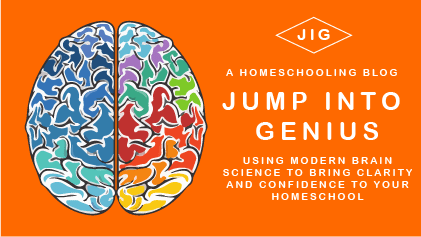How To Get Students Ready to Learn
In the lower back of your brain there is a little system, about the size of your pinky, called the Reticular Activating System, or RAS for short. This system is responsible for deciding how alert and responsive the rest of the brain should be. The RAS decides how alert we are, how much we should pay attention to the data around us, and what data should be the focus of our attention.
The RAS is sensitive to changes in our environment.
If the RAS is senses novel changes in our environment, it sends the information up to the higher brain. We are exposed to millions of bits of data every second. However, our RAS only allows about 2000 bits per second to pass through into the upper levels of the brain. (Source: How Your Child Learns Best – Judith Willis)
If you put your hand on the stove, your RAS sends that info right on through, and insists you focus on removing your hand immediately from the heat source and then continues to focus your attention on that burnt hand, and taking care of that pain. This saves us from more severe and permanent injury. The RAS noticed the sudden change in the temperature your hand was exposed to. Changes in our environment could be important survival information, and so the RAS usually passes that information right up to the higher part of the brain.
Tune-Out Mode is Not Learning Mode
We all know that we tune many things out. Sometimes on purpose, but other times without even trying, we fail to notice things happening around us. When we are teaching, if our students are in this tune-out mode, the information is not making it into the higher parts of the brain. How do we make sure the information we are trying to teach gets through this filter?
Change Something
Changes in the environment are one way to wake up the RAS and get it to set your brain dial to “attentive state”. For example, a wonderful taste, ever seen a child who was lethargic before eating a cookie perk right up post consumption? Sugar takes a few minutes to process, but a great flavor tells the RAS that this is a great food source for survival and tells the brain to wake up.
If we were foragers we would go looking for more cookies. However, once the attention dial is on, we don’t have to keep our focus on the cookie, we can transfer it to information we want to get into that higher part of the brain. Of course, spicy mustard will have this same effect, but if your child does not like the flavor, the amygdala may come into play and filter all information into the survival areas of your brain, thus sabotaging higher level thinking.
I am not suggesting you have to feed your kids a cookie before teaching them, this is just a universally understandable example. In many ways, our brain only wants to focus on the good stuff.
Our Brain Tags Some Information As Interesting & Sends It Up Every Time
Your brain also responds to things like hearing your name…ever have to say a child’s name to get their attention? When we think something is interesting, our brain can learn to mark that information as information that is important and the RAS will send it up everytime. Did you ever research something, like a specific car you were thinking of buying, and then, all of sudden, where you had not seen many before, these cars you want seem to be everywhere? There were just as many of those cars on the road before, but you did not notice, because you had not told your RAS it was important information until now.
Make Lessons Interesting to Get Students Ready to Learn
So, another way of turning that switch is just making the way we teach and present information interesting. You can do this by incorporating humor, puzzles, beauty, and novelty to the lesson.
You don’t have to do all of it at once, you are not trying to become a court jester. Just a little something sprinkled here and there, to keep that attentive switch in the brain turned on to the information you hope is getting through. If the brain is used to this learning time being attentive time, it will be more likely to send that info up to higher brain every time. So making a habit of teaching in interesting ways, will make a habit in the students brain, of paying attention to your teaching.
Our brain has many ways to protect us from information overload. To teach, we must respect the wisdom of our biology and work with the brain instead of against it. Time to stop cramming and start enjoying, investigating, and exploring, things humans have loved doing from the beginning.


